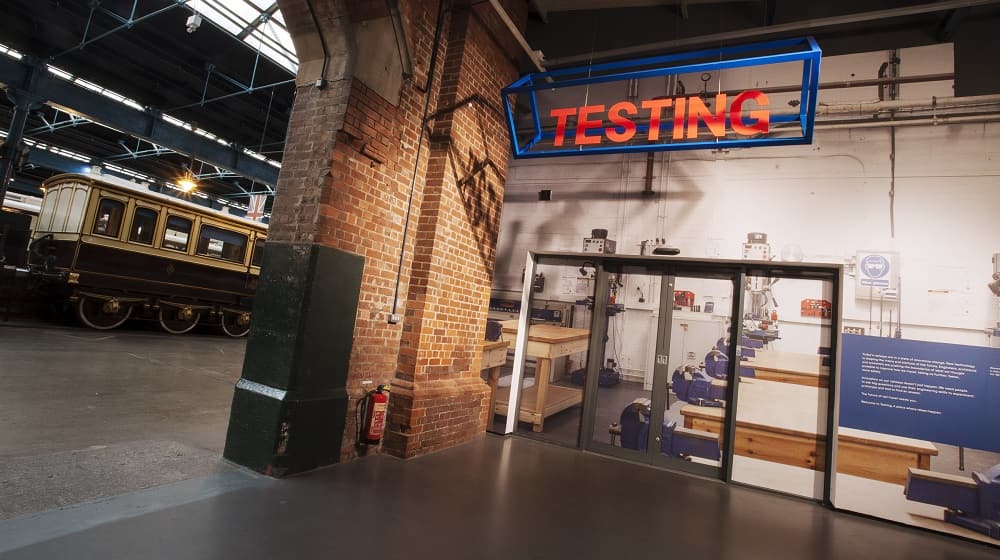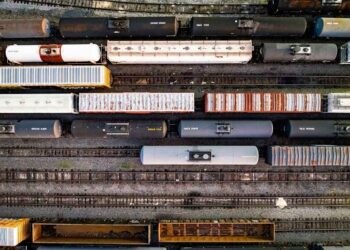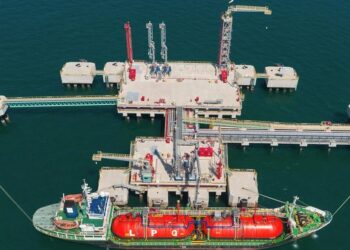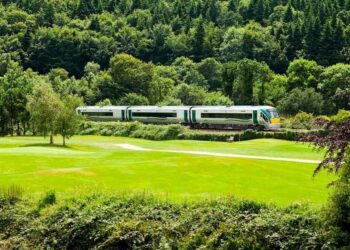Soil samples in the laboratory may seem a world apart from the gleaming high tech of the high speed train. Yet both share the spotlight in a current exhibition at the National Railway Museum in York giving a rare insight into the role of testing and prototyping in pushing the boundaries of rail engineering.
‘Testing’ showcases the science behind some of the UK’s latest railway innovations, from the aerodynamic testing of new cabs to the futuristic ‘Hyperloop’ high speed pod and ultimate in bench design being developed for Crossrail. Space is also given to the cutting-edge geoscience used in ground investigations for HS2 seen through the work of global geo-data specialist, Fugro.
The importance of geotechnical testing – collecting and analysing soil and rock samples – in the delivery of HS2 is told from the perspective of Fugro senior laboratory technician, Lindsay Campbell. Featuring scientific instruments and real core samples, the display explains the processes and skills she uses to provide vital ground condition data for design and construction.
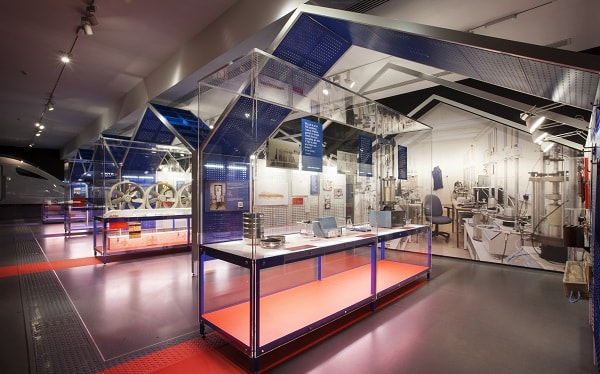
The results of testing on site and in the laboratory are analysed and combined to help designers ensure the track and structures are safe, robust and cost-efficient. Fugro provides reports, advice and 3D ground models based on the information, building a digital foundation for the railway.
Lindsay’s story also highlights the growing number of women scientists and technicians working in the rail industry, with Fugro supporting female employees providing equal opportunities to develop and fulfil their potential.
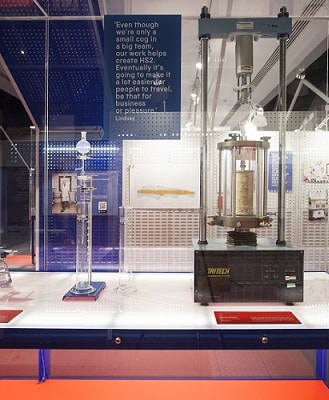 She commented: “The soil and rock analysis undertaken in the lab provides strength and mechanical data about the ground to help with the design of track, tunnels, bridges, stations and other infrastructure along the proposed HS2 route. Our work is the start of it. The ground investigation needs to be done before HS2 can be created.”
She commented: “The soil and rock analysis undertaken in the lab provides strength and mechanical data about the ground to help with the design of track, tunnels, bridges, stations and other infrastructure along the proposed HS2 route. Our work is the start of it. The ground investigation needs to be done before HS2 can be created.”
Charlotte Kingston, head of interpretation and design at the National Railway Museum, said: “Engineers, architects and scientists are pushing the boundaries of what we thought possible to improve how we travel, taking us further, faster and more safely. Innovation on the railways doesn’t just happen and we need people to ask big questions and to use their engineering skills to experiment, prototype and find the answer.”
Fugro is among a number of ground investigation specialists who have been undertaking site investigations for HS2 since 2015.
‘Testing’ is free to enter and runs until the end of April 2019. More details on the exhibition can be found at www.railwaymuseum.org.uk/whats-on/testing , and more information on geoscientific investigations for rail at www.fugro.com/rail
ABOUT FUGRO
Fugro is the world’s leading Geo-data specialist, collecting and analysing comprehensive information about the Earth and the structures built upon it. Adopting an integrated approach that incorporates acquisition and analysis of Geo-data and related advice, Fugro provides solutions. With expertise in site characterisation and asset integrity, clients are supported in the safe, sustainable and efficient design, construction and operation of their assets throughout the full lifecycle.
Employing approximately 10,000 talented people in 65 countries, Fugro serves clients around the globe, predominantly in the energy and infrastructure industries, both offshore and onshore. In 2018, revenue amounted to EUR 1.7 billion. The company is listed on Euronext Amsterdam.




















